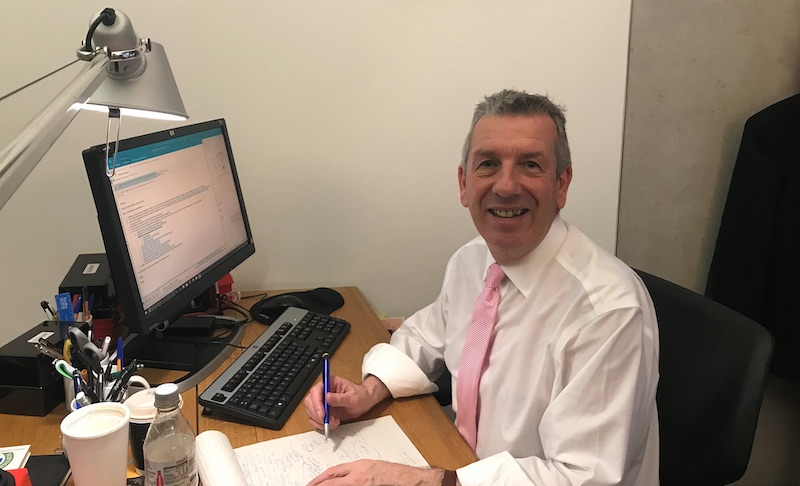Highlands and Islands Labour MSP, David Stewart (pictured), said it was “a disgrace” that those who live in our most deprived areas were more than twice as likely to die with Covid-19 than those in wealthy areas.
At the virtual meeting of the Scottish Parliament’s Health and Sport Committee this morning (June 17) Mr Stewart, who is also Scottish Labour’s Shadow Public Health Minister, asked Ms Freeman what the Scottish Government intended to do to reverse health inequalities.
“The Royal College of GPs concluded in evidence to our committee that the pandemic has shone a light on the persistent health inequalities that continue to exist in Scotland’.
“All our witnesses will know this, but those who live in our most deprived areas are more than twice as likely to die with Covid-19 than those in the least deprived communities.
“Cabinet Secretary I feel this is a disgrace.
“What action is the Scottish Government going to carry out to reverse health inequalities?”
Mr Stewart also raised the connection with obesity, conditions such as Diabetes and Covid-19 and called for cross cutting policies in the future – for example policies that cross the different aspects of housing, health and employment.
Mr Stewart said:
“There may well be future pandemics, or of course regional health emergencies such as the foot and mouth crisis in 2001, but we can read the crystal ball that the poor will get a raw deal on these.
“How can we turn health inequalities on its head and place the disadvantaged on the top of the list?”
Health Secretary, Jeane Freeman, said Mr Stewart was absolutely right about the light being shone on those more severely impacted by Covid-19.
She detailed how there was also emerging evidence about the longer term impacts of those who have had the disease in terms respiratory, cardiovascular and renal functions and clear indications that certain underlying health conditions may make an individual more susceptible to a serious response to the infection, or the infection causing serious ill health in an individual compared to those who do not have underlying health conditions and some of those underlying health conditions related back to the circumstance of poverty and deprivation.
She added that the Chief Medical Officer and senior officials had been tasked to undertake an early piece of work looking at what was needed to tackle population health particularly in relation to health inequalities.
“There is a clear pressing demand now for us to find ways to be more effective in reducing health inequalities and reaching groups of people with important but practical ways by which they can improve their own health that we have not so far been successful in doing in 20 years of devolution.
“There is much more for us to do and we have already tasked the initiation of that work,” said Ms Freeman.
After the meeting Mr Stewart said he welcomed Ms Freeman’s assurance that work was underway to look again at health inequalities and her comment that it was “entirely fair to demand of this Government or any Government that as you plan for your response to any health emergency that your early thoughts go to those who are most disadvantaged in your society.”
Mr Stewart added:
“However, in January, even before Coronavirus lockdown, the scale of persistent health inequalities was highlighted by Scottish Government statistics.
“In 1997, premature mortality rates were three times higher in the most deprived areas compared to the least deprived; in 2018, rates were four times higher in the most deprived areas.
“Over the last decade there has been a desperate need to plough more investment into these communities, to find better ways to tackle health inequalities.
“Covid-19 has brought into sharp focus that this has not happened and it’s shameful.”



